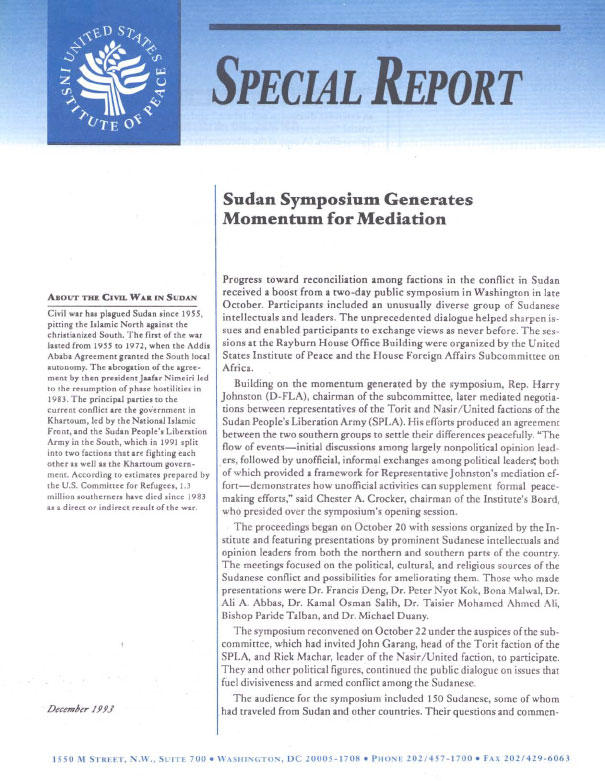Sudan Symposium Generates Momentum for Mediation
Civil war has plagued Sudan since 1955, pitting the Islamic North against the Christianized South. The first of the war lasted from 1955 to 1972, when the Addis Ababa Agreement granted the South local autonomy. This report summarized the two-day public symposium, held in Washington at the Rayburn House Office Building, and organized by the United States Institute of Peace and the House Foreign Affairs Subcommittee on Africa. The symposium promoted reconciliation among factions in the conflict in Sudan.

About the Civil War in Sudan
Civil war has plagued Sudan since 1955, pitting the Islamic North against the Christianized South. The first of the war lasted from 1955 to 1972, when the Addis Ababa Agreement granted the South local autonomy. The abrogation of the agreement by then president Jaafar Nimeiri led to the resumption of phase hostilities in 1983. The principle parties to the current conflict are the government in Khartoum, led by the National Islamic Front, and the Sudan People’s Liberation Army in the South, which in 1991 split into two factions that are fighting each other as well as the Khartoum government.
This report summarized the two-day public symposium, held in Washington at the Rayburn House Office Building, and organized by the United States Institute of Peace and the House Foreign Affairs Subcommittee on Africa. The symposium promoted reconciliation among factions in the conflict in Sudan.



